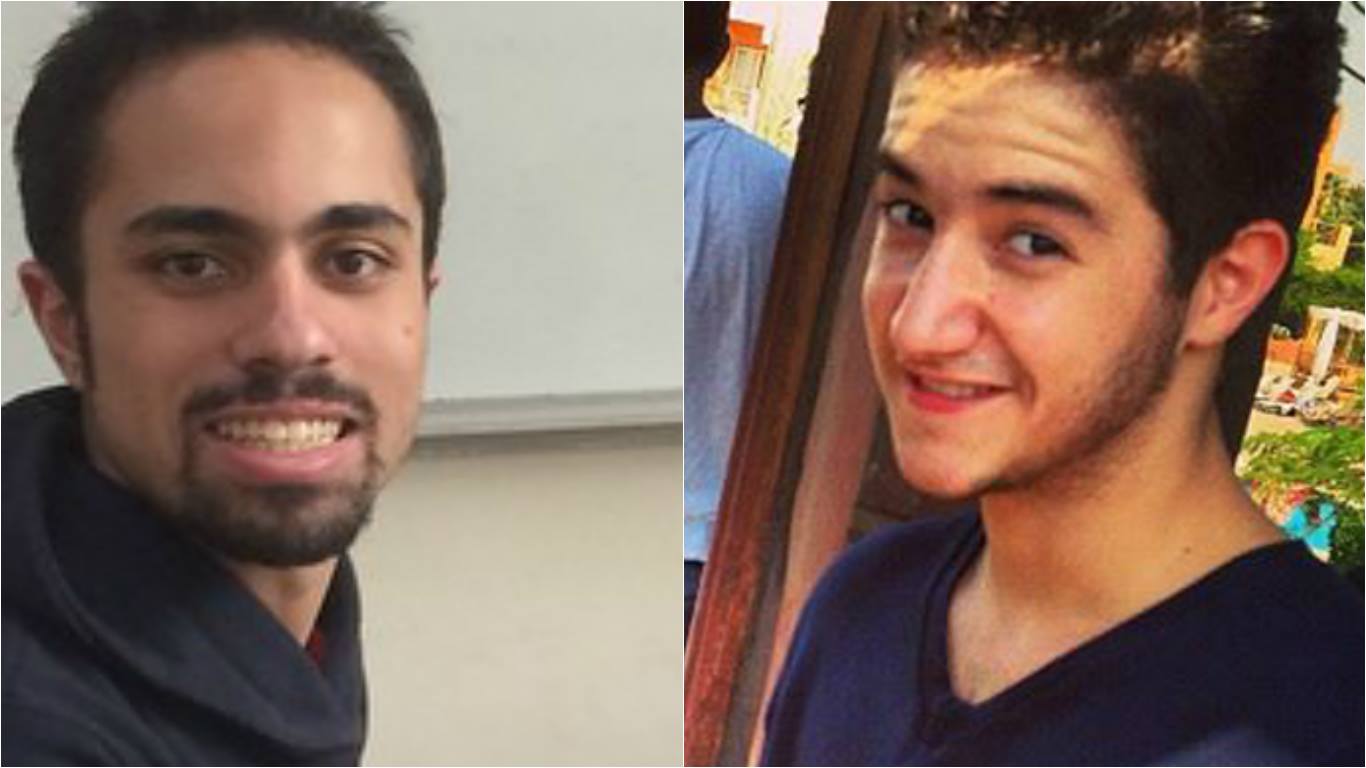Latest NEWS
- Aswat Masriya, the last word
- Roundup of Egypt's press headlines on March 15, 2017
- Roundup of Egypt's press headlines on March 14, 2017
- Former Egyptian President Hosni Mubarak to be released: lawyer
- Roundup of Egypt's press headlines on March 13, 2017
- Egypt's capital set to grow by half a million in 2017
- Egypt's wheat reserves to double with start of harvest -supply min
- Roundup of Egypt's press headlines on March 12, 2017
Egypt's Shadi H. AbuZaid 'terrified' after handing out condoms to police

By Hend Kortam
CAIRO, Jan 27 (Aswat Masriya) - Shadi H. AbuZaid, who is at the centre of debate after handing out condoms to policemen in central Cairo, said Tuesday, "maybe I used to be scared before... but now I am terrified."
He said in a statement that he believes his days outside prison "are counted" after prosecutors decided to look into a complaint filed against him and actor Ahmed Malek for filling up condoms with air and handing them out to policemen on Jan. 25, 2016, which was recorded in a two-minute video posted online.
On the inflated condoms, they wrote a message that read "From Egypt's youth to police on January 25" and handed them out as balloons to unsuspecting policemen tasked with securing Tahrir Square. The day marked the fifth anniversary of the 2011 Uprising, which was in part an expression against police brutality, but also marked the 64th national police day.
Taking a jab at the police, AbuZaid and Malek, whose whereabouts are currently unknown, sparked controversy.
Many on social media said they find what they did inappropriate and morally unacceptable. Others are not only opposed to the symbol itself, they also believe that the police force includes "respectable" people and should not be insulted especially after all the "sacrifices" the police made for the country.
Even the show that AbuZaid worked for, the popular satirical TV programme "Abla Fahita" which features a fictional puppet character that pokes fun at social and political events in Egypt, distanced itself from the video and said it features "unacceptable content."
The programme said the video and the abuses it contains are totally rejected.
On the other hand, many are expressing their solidarity with the pair. Satirist and renowned television host Bassem Youssef said "a strong state" does not care about joking "and does not care about 'kids' even if they are ill-mannered."
Youssef, who himself has faced multiple hurdles while running his show before it was eventually suspended in June 2014, said freedom of opinion means the freedom to "insult" AbuZaid and Malek but the real insult to the "prestige of the state" is for the whole state to move in response to the video.
AbuZaid and Malek have had two completely different responses to the backlash.
Malek said in a Facebook post on Tuesday morning that he "sincerely apologises," adding that the video posted on the internet contained "violations" and that he did not expect it to be shared outside his friends' circle. However, "this is not a justification for the mistake."
He added that he is "a 20 year old and sometimes, at this age, reckless ideas precede rational thinking.”
But AbuZaid said the streets were filled with security forces on the fifth anniversary of the uprising and there were "threats" to anyone who would protest "and really no one did".
"Everyone is oppressed... " he said, adding "you do have weapons and the legal authority but all of these weapons, we will make jokes out of."
"You can kidnap us from our homes and kill us in broad daylight... but you cannot deny our existence, nor can you deny that you are a joke... just a silly joke," he said.
AbuZaid had said earlier in a statement shared on his behalf by his sister, that he did not provide any content criminalised by law, did not "slander" any person or entity and did not "incite violence or discrimination between citizens."
Hashtags related to the incident have been circulating on Twitter including #in_solidarity_with_Shadi and #Ahmed_Malek, both written and Arabic and used extensively to support AbuZaid and Malek.
One hashtag that recently started trending, #condom is being used by both sympathisers and critics of the pair.
The incident has garnered international attention, with CNN Arabic writing about the controversy it created and the New York Times running a piece with the headline, "Egyptian Satirist Threatened for Giving Police Condom Balloons."










